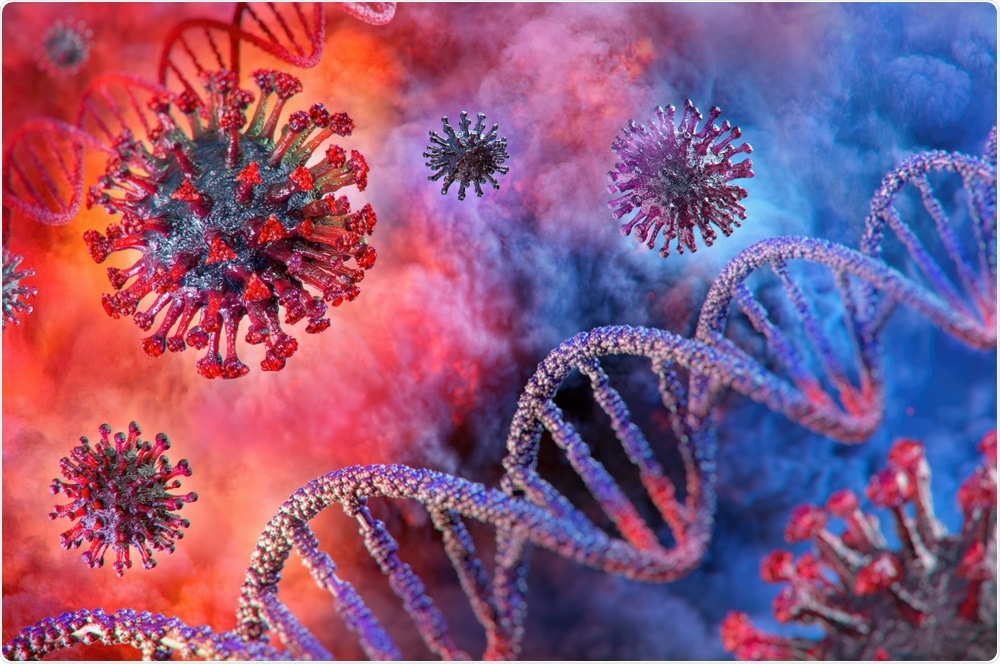Today Berkeley Lights, Inc., announced the Global Emerging Pathogen Antibody Discovery Consortium (GEPAD) with founding members Dr. James Crowe and Dr. Robert Carnahan at Vanderbilt University Medical Center, Dr. Erica Ollman Saphire at La Jolla Institute for Immunology and Dr. Frances Eun-Hyung Lee at Emory University with the aim to accelerate the discovery of neutralizing antibodies from patient blood samples.

Image Credit:Corona Borealis Studio/Shutterstock.com
Processing precious blood samples and fragile cells can be challenging with traditional technologies. The consortium will leverage Berkeley Lights' Beacon platform for antibody discovery using the blood of recovering patients as the foundation for therapeutics, with COVID-19 as a first target.
While researchers around the world are quickly characterizing the SARS-CoV-2 virus, the ability to screen single B cells expressing a SARS-CoV-2 neutralizing antibody remains a significant and time-consuming challenge. The body has billions of B cells.
After a patient recovers from SAR-CoV-2, they generate many B cells specific for the virus; however, some B cells will make antibodies that just bind to the virus but are not protective. Hence, finding the special B cells that eliminate or neutralize the virus is exceedingly rare. It is like finding a "needle in a haystack".
The existing technologies can only search for binders, not neutralizers – so researchers are forced to sequence and re-express the antibody from non-specific B cells wasting significant time and resources. The Beacon system and the viral neutralization assay is designed to address this problem by directly screening single cells for neutralizing function in a single day.
The primary goal of the GEPAD Consortium is to enable the quickest therapeutic response to emerging pathogens. The GEPAD Consortium is requesting that anyone interested in this viral neutralization workflow and advancing the state of the art reach out and join them in forming a defensive barrier worldwide against diseases caused by emerging pathogens.
Members will be enabled to rapidly discover potential treatments using small volume blood samples from recovering patients—both acute and convalescent. The consortium is rapidly iterating and improving the viral neutralization workflow executing on the Berkeley Lights platform and hopes that more collaborators will come forward to participate in fighting this epidemic and be better prepared for the next one.
We have long sought to study the antiviral capacity of antibodies secreted by single human B cells, but the instruments and protocols for doing those studies didn't exist. Partnering with Berkeley Lights on developing innovative approaches to this single-cell biology task is now becoming a reality,"
Dr. James Crowe, MD, Director of the Vanderbilt Vaccine Center.
"We have developed a specialized survival media for plasma cells and envision the use of it for rapid upfront selection of a rare target monoclonal antibody," said Dr. Lee. "Berkeley Lights together with this consortium will make this method a reality for COVID-19 neutralizing antibodies. We hope this helps in this pandemic to save lives."
"There's an opportunity here to quickly mobilize something that could protect frontline workers or treat those who have been infected," explained Dr. Saphire. "Vaccines aren't available yet. Providing some immediate immunity using antibodies could be lifesaving for those who haven't been vaccinated or can't be vaccinated, or if the eventual vaccines aren't completely protective."
COVID-19 is a serious threat to our health, our way of life, and the world economy, we are committed to doing our part by developing assays and workflows that researchers and therapeutic developers can use to rapidly discover antibodies that are key to treatments."
Dr. Eric Hobbs, CEO of Berkeley Lights.